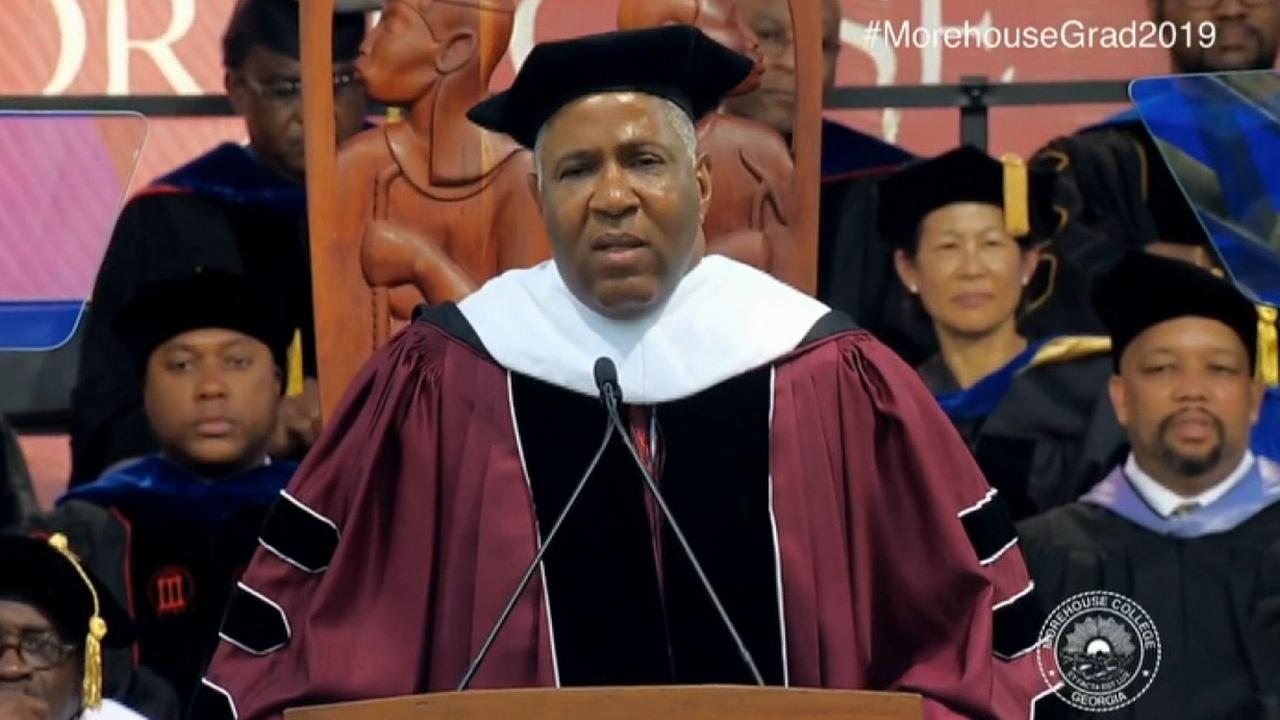Five tips on refinancing your student loans
Americans are having trouble paying off their student loan debt. The Urban Institute reports that 250,000 federal direct loan borrowers see their loans go into default every quarter. The Federal Reserve Bank of New York says student loan debt rose by $79 billion last year alone. While refinancing may help relieve some individuals of that financial burden, a survey from Student Loan Planner found that 85 percent of student loan borrowers are afraid of refinancing. Andrew Pentis, student loan expert at Student Loan Hero shared five tips to help consumers understand the refinancing process:
Refinancing reasons
Pentis says the main reason many people choose to refinance their student loans is to get a lower interest rate.
“Refinancing is really the only way to do that,” he says. “What’s so valuable is that if you have a lower interest rate, you can obviously save money on the interest you’ll have to pay over the course of your loan repayment.”
Pentis says there are other reasons borrowers may want to refinance their student loans:
- It can make loans more affordable by lowering monthly payments
- It can make loans more manageable by consolidating into one payment
- It allows you to escape the loan system and switch to a lender of your choice
- It allows you to remove a cosigner from your original loan and refinance on your own
Loans will be consolidated into one
When you work with a refinancing lender, they will pay off all of your old loans and then issue a new loan for the amount that you owed.
“Say that you borrowed federal student loans and you had three or four different servicers on those loans,” says Pentis. “You not only were making a handful of different payments, but you were also making them to a handful of different places. With refinancing you can just have one payment to one lender of your choice.”
Pentis adds that you can also achieve consolidation through the federal loan system with a direct consolidation loan. If you do that, you get to choose a loan servicer unlike when you originally took out the student loan.
Lenders will look at your financial condition
Lenders are looking for borrowers who can repay their new debt. To mitigate their risk, lenders are looking for creditworthy borrowers. Pentis says your credit score is the first criteria lenders will consider.
“If you have a credit score in the high 600s, you are going to have a good chance of qualifying on your own,” he says. “If you have a score in the 700s, you are definitely going to qualify and score a better interest rate. If you have an even higher score into the 800s, then we’re talking about being able to access those really low-interest rates that you see advertised by private lenders.”
Pentis says lenders will likely look at your employment history to ensure you have a stable income. Lenders may also consider your banking history to see how you manage money and if you can afford the payments. What if you are not able to meet the lender’s criteria? Lenders may give you the option of including a cosigner or a guarantor.
“What that cosigner or guarantor would do is they would legally agree to pay your loan if you were unable to,” he says. “If you have a cosigner, they could really be the tipping point that helps you receive an approval instead of a denial.”
Borrowers should be aware of what they give up
Pentis says refinancing is a great tool, but it’s also an irreversible process. Once agreeing to refinance their loans, borrowers should make sure they have selected the right repayment management strategy for them.
“Say for example the federal government introduces and passes legislation that’s going to make life easier for federal loan borrowers in the future,” he says. “If you’ve already refinanced with a private lender, you obviously would not be able to benefit from whatever those legislative changes yield.”
Pentis also notes that you could give up benefits that are exclusive to federal loans such as income-driven repayment, the ability to pause payments if you have an economic hardship, as well as deferment and forbearance programs. You may also give up the ability to potentially qualify for public service loan forgiveness.
Survey your lender options
List all of your required benefits before shopping around for a lender.
“We recommend that you shop around with at least three banks, credit unions and online-only lenders to ensure you can compare the offers of different interest rates and different loan terms,” Pentis says.
He also recommends prequalifying with lenders.
“You submit to a soft credit check that will not affect your credit score,” Pentis says. “Once you are sure about the lender, then you can actually complete a formal application and submit yourself to a hard credit check. That could ding your credit score by a few points, but in the long run, if you gain approval for refinancing, the benefits will far outweigh the risks.”
CLICK HERE TO GET THE FOX BUSINESS APP
Not sure if you qualify to refinance your student loan? Pentis says banks, credit unions, and online lenders are getting more innovative with their eligibility process.
“More and more you are seeing that non-citizens, non-college graduates and freelance workers have access to student loan refinancing where in years past they did not,” he says. “If you need to, you can always attach a cosigner to your refinancing application if you need approval.”
Linda Bell joined FOX Business Network (FBN) in 2014 as an assignment editor. She is an award-winning writer of business and financial content. You can follow her on Twitter @lindanbell




















